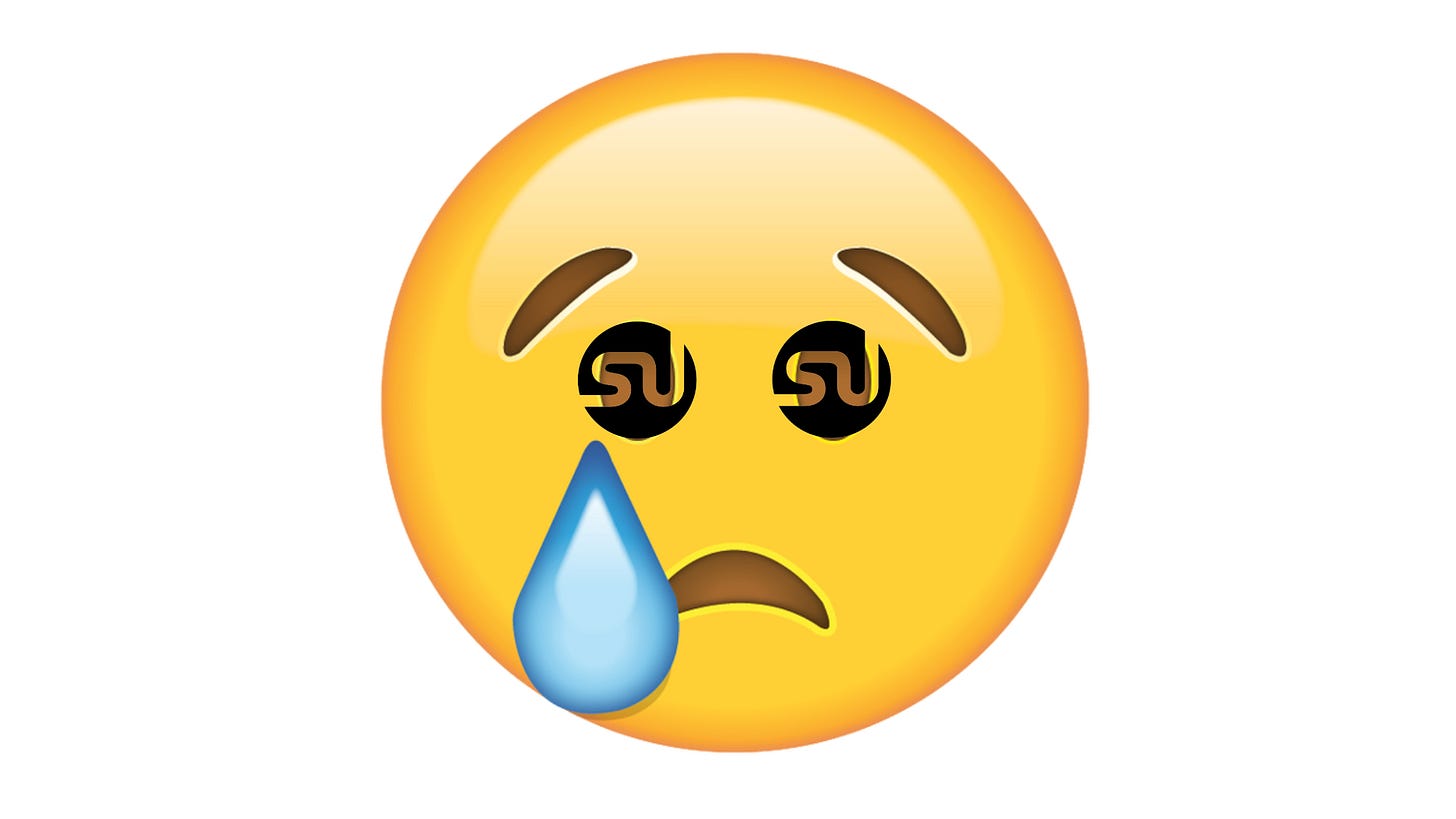I still miss you, StumbleUpon
But that era of the internet is never, ever coming back
The internet has changed beyond recognition. Sure, some things improved in the last 20 years, like high-quality video and music streaming, but other parts of the online world are much, much worse. You know, bafflingly, horrifyingly worse. Like modern Twitter.
But if there’s one aspect of early internet culture I miss more than anything, it’d be StumbleUpon.
For the unfamiliar, StumbleUpon was a browser add-on where you’d click a button (that said “Stumble!”) and it’d take you to an interesting website. That was all it did. And it was the absolute best.
I can’t tell you how many hours I wiled away on the platform. In a period where I had no money, low ambition, and there was nothing going on in my life, StumbleUpon was a salve, a glorious way to waste time yet feel like it wasn’t being wasted.
For a while, the tool was a huge success. StumbleUpon became a traffic behemoth, delivering a billion “stumbles” a month, but, following a redesign, it dwindled before shutting down completely in 2018.
There have been attempts to bring StumbleUpon back. In fact, the company was bundled into Mix.com not long after it shuttered, a tool promising the same sort of content discovery as its predecessor. The problem with Mix.com though is that it’s a bit crap.
Which isn’t entirely its fault.
Any attempt to remake StumbleUpon won’t work because the internet that enabled it just doesn’t exist these days. We’re simply in a different online era.
The internet in the early 2000s felt full of shit, a varied and deep place populated with interesting troughs and trenches. People seemed to constantly set up fun and surprising sites.
Nowadays, the online world feels stunted. An internet paddling pool, flat and featureless. We only visit a few social media sites, with an occasional jaunt to an ecommerce giant or news provider.
Statistically, there are now more websites than ever, but there are also more people online than ever before. Despite that, the majority of our time is spent on fewer sites.
And what’s driven this change? Well, buddy, that’d be the business and centralisation of the internet.
Big sites have gobbled up little ones. When I first went online, there was an individual forum for almost any interest — now most of those have migrated to places like Reddit. Rather than browsing several sites focused on our hobbies, we go to a social media platform we hope will deliver us the best of that news. Instead, they work only to keep us hooked that platform.
There’s money behind this too. The online world is built on adverts, and it’s far easier to sell to people when they’re all in the same place. It’s why when you Google something, you’ll get as many shopping links as sites serving actual information.
It’s easy to blame big companies for this shift, but we, the people, have to shoulder it too.
It’s us who hunger for online crowds, for the hum of millions. We readily accept Twitter or YouTube or Instagram deciding what we consume, rather than making that decision ourselves.
That’s what the internet has wrought: automation of the things we like.
This prioritises an algorithmically-driven approximation of what humans think — but it’s not really accurate and it’s not really humanity.
We’re made to operate in small groups, in niche communities. This is where we get real value from.
Yet it’s hard to move away from these big networks. Maybe because people we know are there? Maybe because we have a fear of missing out? We keep coming back and suckling on this teat that poisoned the once-proud internet.
And I’m not one to talk — I’m still on Twitter all fucking day.
When it comes to StumbleUpon, it’s not necessarily the service or even the era that I miss. I think, maybe, it was the time when every piece of content wasn’t trying to reach a mass audience and make money. So much of what StumbleUpon showed me were people’s passion projects, ventures they’d cultivated with their undivided attention.
People should be able to make a living online, but it shouldn’t be by appealing to the lowest common denominator and giving in to what the algorithm demands.
I guess that’s why newsletters are growing. They harken back to a smaller, cosier internet, one where people wrote about things they loved.
And, of course, made no money at all.
In a perfect world, I’d love StumbleUpon’s resurrection, but the past is the past for a reason. Those days are gone.
What is possible though is returning to the vibe of that time, one of discovery and lots of small communities, rather than an online mono culture.
But that requires us to act. To stop going on huge social media networks so much. To visit forums, niche publications, and strange little sites again. To be proper online citizens, rather than cattle for whatever content the algorithm decides we should consume. Let’s act like people on the internet again.
(P.S. If you’re after something StumbleUpon-esque, then check out Pointless Sites. It’s a good place to waste a few hours.)




I feel this! I was just thinking about StumbleUpon and stumbled upon (!) your Substack. Can't even find a good screenshot to really represent the awe one felt while clicking through the endless pages. Sigh
I too stumbled upon your substack while wondering what happened to my beloved stumbleupon website. Truthfully, I align with your desires to resurrect the old-world internet age. The whole point of discovery tapped into curiosity rather than today's mission of consumption.